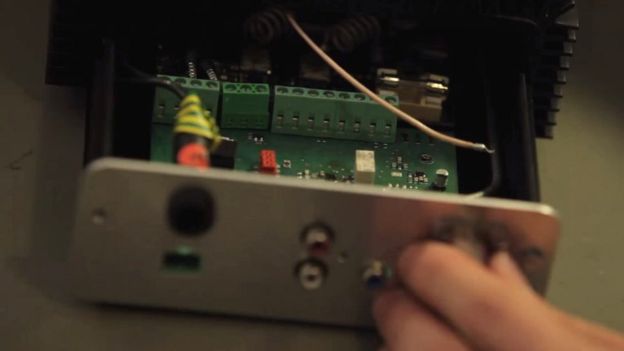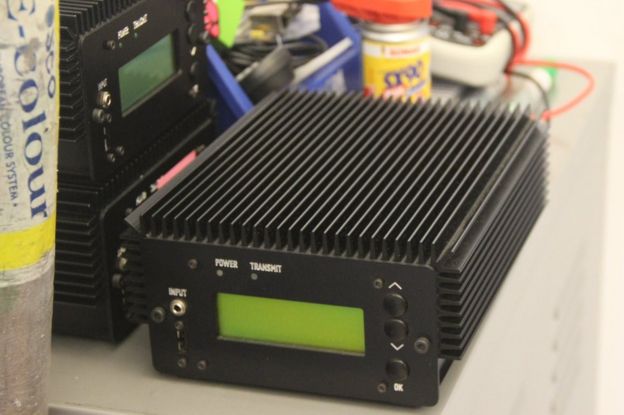"They say that the first casualty of war is the truth, and that’s probably only more the case in a civil war. When one side in a conflict controls the message, the other side is at a huge disadvantage. Technology can level the playing field, and in the case of the Syrian Civil War, a swarm of tiny Raspberry Pi transmitters is helping one side get their message out.
We won’t pretend to understand the complexities of this war, but it’s clear that the Syrian government controls broadcast media and access to the internet, and is using them for propaganda while denying the opposition access to the same. A decentralized medium can get the message out under these conditions, and that’s exactly what Pocket FM does. Built around a Raspberry Pi and a frequency-agile FM transmitter, a Pocket FM can take multiple audio feeds and transmit them out to a 5km radius. Small enough to be packed up and deployed quickly and able to be powered by batteries or solar panels, the pirate transmitters can be here one minute and gone the next, yielding a robust network resistant to takedown attempts.

The network built around Pocket FM in Syria is small but growing, and it appears to be making a difference in the conflict. We find the concept of a decentralized network intriguing and potentially empowering, at least in situations where the letter of the law regarding broadcasting is not a prime consideration. That’s where projects like Airchat seek to build an unsanctioned network. The same goes for Tweeting on the Amateur Radio Band in a project aptly named HamRadioTweets."
"The Pocket FMs, as they are called, were designed by a German organisation as a way of providing Syrians with independent radio. The devices have a range of between 4 to 6km (2.5 to 3.75 miles), which is enough to cover an entire town. At the heart of each is a Raspberry Pi, the credit card-sized single-board computers. About two dozen have been built, and the designer says they are intended to be as easy to set up as a piece of flat-pack furniture.
"We lost one device in Kobane", Philipp Hochleichter told BBC Radio 4's PM programme.

"But due to the bombing - not due to a malfunction." The Pocket FMs are deployed in situations in which larger transmitters would be difficult to set up and operate.
"We tried to develop a small box that is easy to carry around, easy to transport, easy to hide [and] that is based on 12 volts so you can connect it to a solar system or a car battery", Mr Hochleichter explained.
The Pocket FMs broadcast a channel created by a network of nine stations based in the region called Syrnet.
The devices pick up a satellite feed of the channel, and rebroadcast it on a FM frequency, so people in Syria can listen on ordinary radios. Eventually, the devices will be capable of picking up the Syrnet channel via wi-fi and mobile data. The channel is also available to listen to online, and via a mobile app.

The group behind the project is Media in Cooperation and Transition, a Berlin based non-governmental body.
As well as designing the Pocket FMs and maintaining Syrnet, MiCT employs a team of journalists, many of whom are expatriate Syrians. They help the small independent stations make programmes.
The Pocket FMs operate in the areas not controlled by either President Bashar al-Assad's regime or the so-called Islamic State militants.
"There is a space, it might be tiny, where people are against Assad and not part of the Islamic movements" said Najat Abdulhaq, who manages the Berlin-based journalists."
Source: http://www.bbc.com/news/technology-35690688





 PapaDragon
PapaDragon